Generating and Elevating Product Marketing
Creative and impactful product marketing has been at the heart of my career. I love producing strategies and executing plans to bring products to market and drive their long-term success. I have a proven track record of researching customer needs, crafting product messaging, orchestrating successful launches, and driving usage and adoption among businesses and consumers. The results have had transformative business impacts on revenue growth, brand, and competitive position.
Opportunity: IDology was an industry leader in the increasingly competitive identity verification and cyber-fraud industry. It had built a superior product and possessed superb Executive Leadership who preferred to fly under the radar of criminals and competitors. To fuel the next stage of its growth, land additional blue-chip accounts, and penetrate new verticals, it needed to boost its brand recognition, modernize its corporate look and feel to mirror its innovative solutions and sharpen its position in the market.
Solution: Collaborating closely with leadership, Product, and Sales organizations, a branding strategy was devised, and a brand guide was created. With refined messaging and visuals developed, socialized and buy-in, new internal and external assets were created and launched, including a new website, sales materials, event booths and assets, content and thought leadership campaigns, customer and prospect webinars and industry analyst briefings.
Results: IDology recognized an immediate increase in brand equity as measured by a sustained increase in website visits and SEO results, analyst report mentions, revenue, marketing qualified leads, earned media PR hits, industry leadership among peers in Top of Mind Awareness (TOMA) studies, best-in-class customer survey rankings and NPS scores, and partner co-marketing initiatives, which contributed to an overall 5-year CAGR of 28%.


Modernizing the IDology Brand
Unifying IDology's ExpectId Product Suite
Opportunity: ExpectID, the flagship identity verification and compliance solution from IDology, evolved with shifting market needs. As the company expanded its portfolio with integrated solutions, Sales and Customer teams struggled to articulate a cohesive value proposition. The growing complexity made it difficult to communicate differentiated benefits, leading to missed opportunities in adoption and cross-selling.
Solution: To address this, we developed a strategic messaging framework rooted in industry trends, IDology’s brand identity, and innovation. Partnering with Sales and Product leadership, we defined core value propositions, contemporary themes, and supporting proof points. We mapped key buyer personas by needs, influence, and decision-making power while conducting competitive analysis to uncover market opportunities. Marketing embedded itself in Product and Sales engagements, refining messaging based on real customer pain points. A unified product narrative reinforced the brand and ensured cross-functional alignment. We then launched a multi-channel strategy featuring targeted campaigns, sales enablement materials, and buyer-focused content. Training sessions ensured seamless adoption across teams. Post-launch, we gathered field feedback, customer insights, and competitive intelligence to refine content for future iterations.
Results: The impact was immediate. Sales and Customer teams responded with high ratings (4.8/5.0) in internal surveys. Analyst briefings and press coverage generated strong industry recognition. New marquee accounts adopted multiple products, while successful cross-sell campaigns drove revenue and retention. Sales enablement asset usage surged, and marketing content downloads increased by 40%. Marketing Qualified Leads (MQLs) and web traffic grew 25-30%, securing top SEO rankings. Competitive win rates improved, and the multi-product pipeline maintained double-digit growth, sustained post-IDology’s acquisition by London-based GBG.

Identifying and Launching a New Product Use Case
Opportunity: As the Know Your Customer (KYC) compliance market evolved, providers were also focusing on operational compliance with emerging legislative privacy regulations, such as the EU’s General Data Protection Regulation (GDPR) and California’s Consumer Privacy Act (CCPA). While IDology and its competitors concentrated on preparing for the impending compliance standards, IDology’s marketing team identified a new business opportunity and use case: leveraging its identity verification solutions to validate the identities of individuals submitting CCPA requests, a novel requirement no other firm had yet to recognize.
Solution: The team acted swiftly to research and validate this new use case by collaborating closely with legal, product, and sales teams. A comprehensive Go-to-Market (GTM) plan was developed and executed, including new:
Sales enablement materials
Digital marketing assets
Lead generation Campaigns
Thought leadership content
Social media strategies
Media outreach
Internal training sessions
Results: By seizing the first-mover advantage, IDology secured earned media coverage, event speaking opportunities, a surge in website traffic, and higher-than-average webinar attendance. The initiative opened new opportunities to engage existing and prospective customers, accelerated deal closures, and boosted pipeline growth. Ultimately, it contributed to increased customer acquisition, landed new partnerships, and produced successful co-marketing campaigns with key partners.


Opportunity: IDology’s ExpectID platform was an early integrator of Artificial Intelligence (AI) by utilizing the technology in its suite of identity verification and fraud detection products. ExpectID operated a hybrid technology solution with a rules-based system to run identity checks and Machine Learning (ML) for escalated mobile phone-based identity checks and to power post-transaction fraud detection through its proprietary, multi-industry Fraud Network. However, as new AI-only entrants emerged—riding the wave of AI buzz—they positioned legacy providers, such as IDology as outdated, putting IDology at risk of being perceived as behind the curve. To maintain its reputation as an innovator and protect its revenue, IDology needed to strategically reposition its technology and solution stack, balancing promoting its AI capabilities and providing needed insights on its inherent risks.
Solution: Through an in-depth analysis of AI trends, fraud solutions, and competitive offerings, the marketing team—collaborating closely with Sales and Product—identified key gaps in competitors’ technology approaches and overlooked AI and ML considerations in industry discussions. A strategic messaging framework was developed to highlight both the benefits of AI and the potential risks when not implemented correctly. A campaign that included positioning documents, thought leadership content, sales enablement materials, educational, curated wine-tasting webinars, analyst briefings, digital marketing, internal training, and media outreach was quickly produced and executed. These efforts reinforced IDology’s market leadership and innovative reputation while providing a nuanced counterweight to over-the-top hype from its peers.
Results: By taking a fresh yet refined approach—emphasizing AI’s strengths alongside critical best practices in compliance, bias mitigation, and data intelligence—the campaign shifted industry conversations and provided messaging space for IDology. IDology’s best-in-class thought leadership and new research insights led to increased earned media coverage, a surge in industry speaking engagements, and novel product use case adoption, attracting interest from top-tier financial institutions. The team’s efforts also secured multiple industry accolades, including recognition as a Next-Gen leader in AI and Machine Learning. This product marketing momentum re-established IDology’s reputation as an advanced, trusted authority in the market.
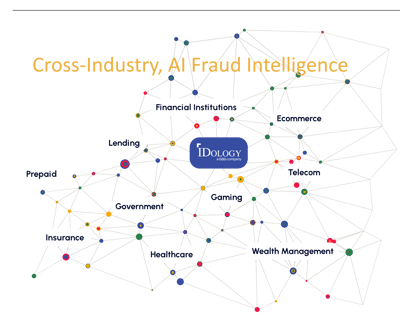

Messaging and Launching AI Functionality
Marketing eBill Distribution to Financial Institutions
Opportunity: Fiserv, a leading provider of Electronic Bill Pay and Presentment (EBPP) solutions for financial institutions (FIs) in the U.S., faced a critical adoption gap in its paperless e-billing service. While online bill payment through FIs was widely adopted, electronic bill presentment via online banking struggled to gain traction. To bridge this gap, Fiserv needed to encourage more of its FI customers to actively promote e-billing to their online banking users. Success in this effort would expand Fiserv’s biller-bank-consumer data network, drive revenue from retailers eager to eliminate paper bills, and strengthen FI retention with a strategic and competitively differentiated, high-value service.
Solution: A comprehensive, cross-division product marketing initiative was launched to address this challenge. The foundation of this approach was a customer research study to quantify the value of e-bills for financial institutions. Partnering with a third-party analytics firm, Fiserv conducted a rigorous statistical study at SunTrust Bank (now Truist) to measure the causal relationship between e-bill adoption, profitability, and customer retention. Armed with compelling data from primary research, the team developed a suite of product marketing deliverables, including research reports, press releases, analyst briefings, internal training, prospect and client webinars, and sales enablement materials. In addition to the FI study, the marketing team led an initiative to optimize in-product messaging and UI design within the online bill pay platform. Consumer research guided creating and testing in-session educational messages that improved awareness and understanding of e-billing functionality. Enhancements like invoice thumbnail previews within the banking interface were also tested and deployed to further drive adoption.
Results: The ROI models from the research study spurred financial institutions to introduce targeted incentives and promotions to boost e-bill adoption. Additionally, major banks such as Chase and Citibank—both of which had previously operated in-house bill pay services—began offering Fiserv’s e-bill network as a standalone product. The research and its market execution dramatically expanded Fiserv’s network reach, adoption rates, pipeline, and revenue. Additionally, UI enhancements led to a 145% spike in e-bill activations within the first week, sustaining a 30% higher activation rate in the following weeks. Ultimately, this strategic marketing effort solidified and sustained Fiserv’s position as the dominant leader in the EBPP space.
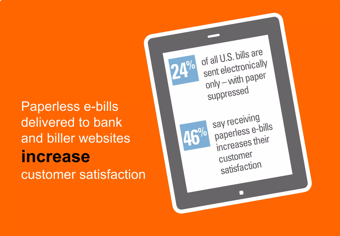

Marketing Paperless Billing through Banks to Billers
Opportunity: Fiserv launched a paid, data-driven e-billing service targeting thousands of “billers” including utilities, credit card companies, and retailers. This service allowed customers to opt out of paper bills in favor of receiving electronic bills (e-bills) directly through their bank’s online bill payment platform—delivering significant biller cost savings on printing and mailing. However, many billers perceived enabling the bank e-bill service as a potential threat to their direct customer relationships. As a result, demand for the service remained lukewarm. Without a critical mass of billers participating, the consumer value proposition to make the paperless bill switch was not high enough for mainstream consumers, limiting the growth of Fiserv’s powerful network effect of banks, billers, and consumers and stalling broader market traction.
Solution: Building on the success of its financial institution value study, Fiserv partnered CenturyLink to analyze the impact of customers receiving and paying bills through financial institutions. The study also segmented customer behavior to address concerns about the potential cannibalization of direct relationships. The research uncovered compelling insights that reshaped the conversation and equipped sales teams with much-needed data to overcome objections. The marketing team executed a comprehensive strategy to market the findings and craft new messages, including press releases, research reports, media coverage, sales enablement assets, client and prospect on-site presentations, demand generation campaigns, and industry speaking engagements.
Results: The combination of data-driven insights and targeted marketing efforts energized sales pipeline and helped push many deals to closure. Collaborating with sales teams on the research and demand generation initiatives helped secure major biller contracts, generating $16M in total contract value. High-profile billers, including Discover Card, embraced and began actively promoting the service, which fueled consumer adoption and enriched Fiserv’s proprietary data network. Additionally, the service established strong customer footholds that facilitated cross-selling opportunities, which the marketing team supported with integrated product campaigns. Research and product marketing campaigns ultimately helped Fiserv’s Biller division become the fastest-growing business unit.
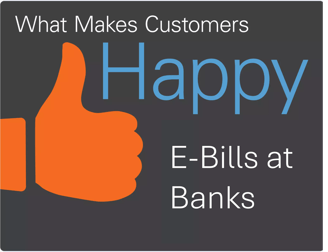

Opportunity: Fiserv, a leading provider of electronic bill payments for financial institutions (FIs), sought to extend its competitive advantage and drive new revenue growth by growing its paperless electronic billing (e-billing) service. By capturing a critical mass of banks, billers, and consumers within its proprietary network, Fiserv aimed to create a powerful "network effect," enhancing its market value and pricing leverage. Through strategic product marketing efforts in collaboration with Sales, Customer, and Product teams, Fiserv has built momentum in closing key thresholds of FIs and Billers to achieve mainstream consumer adoption. However, to unlock the full potential of e-billing and its proprietary network, it needed to drive the final and most critical piece—consumer adoption.
Solution: With banks and billers aligned on the value propositions of e-billing, Fiserv researched consumer needs, crafted relevant messaging and promoted the service through multiple communications channels. It also forged co-marketing relationships and campaigns with industry groups such as NACHA. Research revealed that beyond convenience, consumers were highly motivated by the environmental benefits of paperless billing. This insight fueled a comprehensive “green marketing” initiative featuring
Consumer segmentation by demo and psychographics.
Biller and Banking adoption playbooks with customizable marketing templates.
A dedicated interactive consumer website, eBillPlace.
A full-scale consumer media push on digital, television and radio platforms, leveraging industry partnerships for broader reach.
Results: The campaign’s value propositions, especially its environmental messaging, resonated, securing mainstream media attention, including a feature on The Today Show. Longitudinal research showed sustained year-over-year growth in consumer awareness, interest, and e-billing activations. After the collaborative, targeted product marketing to banks, billers, and consumers, Fiserv’s E-bill Distribution reached an adoption tipping point, revenue grew, and Biller Solutions became the fastest-growing business unit. Meanwhile, Fiserv’s banking EBPP service emerged as the dominant market leader, outpacing competitors—ultimately leading to another provider's absorption of its chief rival, Metavante.
Marketing Paperless Billing to Consumers
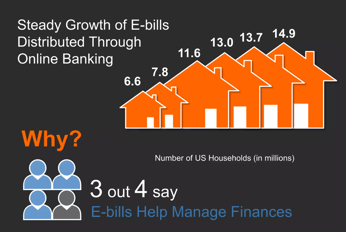



Dean Pinou, VP Payments Management, Fiserv
